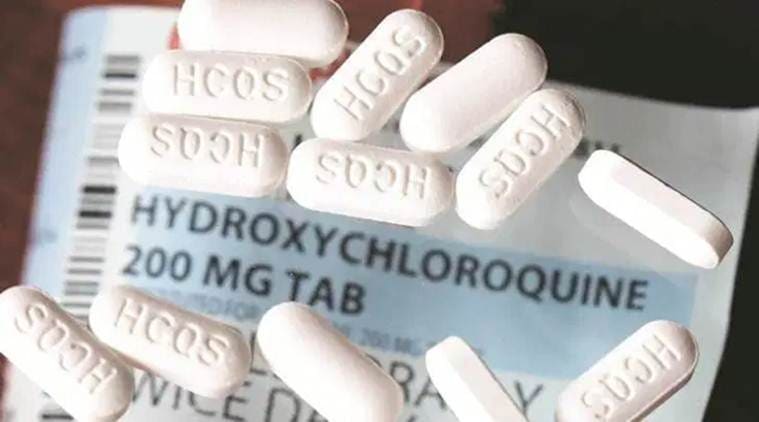Drawing from a government database of about 1,000 healthcare workers (HCW) who have tested positive for the infection, the study also found that there was no significant association between HCQ and adverse drug reactions.
A new Indian Council of Medical Research (ICMR) study has found that a high dosage of hydroxychloroquine (HCQ) correlates with a lower Covid-19 infection rate in health care workers. Drawing from a government database of about 1,000 healthcare workers (HCW) who have tested positive for the infection, the study also found that there was no significant association between HCQ and adverse drug reactions.
“Noticeably, six or more prophylactic doses of HCQ used by HCWs has a remarkably high (>80%) protective effect against SARS-CoV-2 infection… The potential anti-viral and anti-inflammatory properties of HCQ, together with the low cost of therapy, excellent oral bio-availability, high tissue concentrations in the lungs relative to the plasma levels and acceptable safety profile lend support to this assertion.”
The study stands in contrast to a recent World Health Organisation (WHO) decision to halt their HCQ trial because a study published in medical journal The Lancet found that the drug had no therapeutic benefits and even increased mortality in Covid-19 cases.
The ICMR study addressed the discrepancy, stating that the study in ‘The Lancet’ observed patients with a high viral load, while the ICMR study focuses on prevention of the infection. ICMR’s investigation between May 8 and May 23 looked at 378 cases and 373 controls, drawing from the agency’s data portal from over 70 testing labs. The portal has reported 21,402 symptomatic health care workers in the country, of whom, five per cent (1,073) are positive.
The study found that a little over half of the workers who took no HCQ tested positive, 60 per cent who took HCQ without maintenance were positive, almost 70 per cent who took the drug in 2-3 doses were positive, 40 per cent who took 4-5 doses were positive, and less than 20 per cent who took over six doses were positive.
The study hypothesised that the initial spike in positivity amongst healthcare workers taking a low dosage of HCQ is because they may be taking more risks thinking the drug is protecting them. Beyond the HCQ findings, the study also found that a lack of protective gear — masks and gloves — was significantly more common among positive patients (15 per cent) than the controls (5 per cent). This difference was more significant than other factors such as ICU time with a patient or handling a specimen.
The ICMR’s National Task Force recommended HCQ — an antimalarial drug heavily debated around the world — for asymptomatic healthcare workers and household contacts of positive cases on March 23.
The highest dosage recommendation was one dose weekly for seven weeks, after two initial doses.
? The Indian Express is now on Telegram. Click here to join our channel (@indianexpress) and stay updated with the latest headlines
For all the latest India News, download Indian Express App.
Source: Read Full Article





